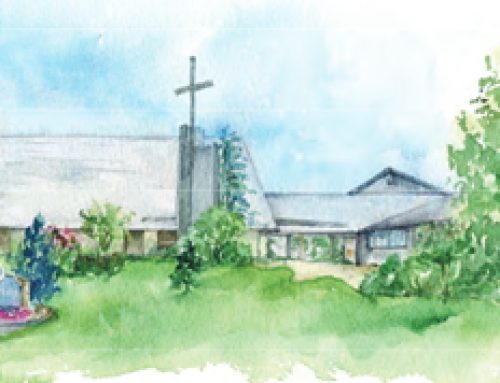SECOND SUNDAY of Advent
FROM THE PASTOR’S DESK
Dear Parishioners,
“It’s not over until the fat lady sings.” As unlikely as it may seem, this saying directly relates to the season of Advent, and to a spiritual attitude in which we should try to live each day of our lives. The saying is often attributed incorrectly to Yogi Berra, the manager of the New York Yankees. He probably receives credit because another of his sayings is close to it: “It’s not over until it’s over.” Both sayings point to a truth: you are not going to know who wins the ball game until the last out is made.
The saying about the fat lady does not originate in baseball. The full saying reveals its origin: “the opera is not over until the fat lady sings”. It reflects the common practice in classical opera that no matter what kind of twists or turns there are in the plot, the last scene is reserved to the soprano—usually a hefty woman of some presence who closes the opera with a dramatic aria. Therefore, what the saying tells us is that no matter how the story seems to be going, wait! There is still time. The opera is not over until the fat lady sings.
Now what does this have to do with Advent? Quite a bit. Advent is about waiting. This is what the readings today tell us. We are waiting for the Kingdom of God—a kingdom which Isaiah describes in today’s first reading as a kingdom on God’s holy mountain—a kingdom which is announced by a messiah which John the Baptist proclaims in the desert in the wilderness.
Advent is about waiting, and so is life. Jesus has revealed to us a God who saves us, a God who will not abandon us, a God that has promised us life. But the promises of God are not accomplished in a day. Thus, the stance for every believer each day of life, is to wait: to wait for God to act, to wait for God to fulfill God’s promises.
Therefore, it is such a mistake, such a tragedy, when we conclude that things are finished, when we decide that we have come to the end of the line, when we decide that there is nothing more to wait for. Because if we conclude that things are ended before God has finished, then we rob ourselves of hope, and we rob ourselves of life.
Now when can we choose such false conclusions? It usually happens in the midst of heartache or disappointment. When we learn that a son or daughter is addicted to drugs, when we are told we cannot conceive a child, when we find that we have to face divorce or the rejection of someone we love, when we have to mourn someone that we have lost in death, when we lose our job, when the diagnosis comes to us that it is cancer—in these moments of crisis, we are tempted to call the game, to throw in the towel, to conclude that things are over.
But the Christian is called not to give up but to wait, because only God can say when the story is finished.
This attitude of waiting is really the fundamental stance of the believer. It applies not only to the crises of our lives, but also the everyday disappointments. When someone forgets our birthday, when our back begins to ache, when our children cannot come home for Christmas, it is easy to conclude that we should just write it off life as a loss and give in to sadness. But the gospel then calls us instead to wait, to see what God will do next. Because as long as there is another scene, anything can happen. As long as God still has room to act, there is hope.
So, the next time you have to face a major crisis, or a small disappointment, don’t throw in the towel. Don’t give up. Wait! Watch what will happen next. We believe that God is still at work, so give Him time to act. Don’t presume to conclude that your life is a tragedy. God has promised you a happy ending. It is not over until the fat lady sings, and God is the only one who can tell her when to take the stage. Until that final curtain falls, any good thing can still happen.
Peace,
Fr. Monteleone
To read complete bulletin click here



